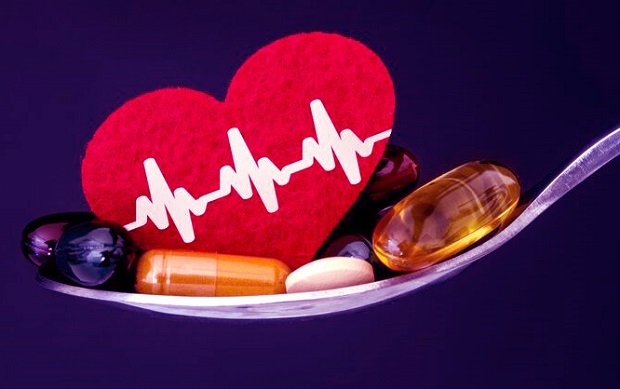Nikhil Prasad Fact checked by:Thailand Medical News Team Nov 28, 2025 2 months, 4 weeks, 20 hours, 45 minutes ago
Medical News: A new scientific review is drawing fresh attention to the hidden risks behind common heart health supplements that many people take believing they are completely safe. Researchers from Carol Davila University of Medicine and Pharmacy in Bucharest, Romania, along with clinicians from the Central Military Emergency University Hospital Dr Carol Davila, examined dozens of nutraceuticals marketed for cholesterol control, anti-inflammation, and overall cardiovascular protection. Their findings show that while many natural compounds do offer real biological benefits, several can also raise the risk of dangerous bleeding—especially when combined with blood thinners or common medications. This
Medical News report takes a closer look at the study’s most important insights.
 New research warns that several common heart supplements may raise bleeding risks while offering mixed
New research warns that several common heart supplements may raise bleeding risks while offering mixed
cardiovascular benefits
Why supplements for heart health have become so popular
Millions worldwide rely on supplements such as omega-3 fish oils, garlic pills, red yeast rice, berberine, nattokinase, ginkgo, curcumin, ginger, and ginseng to improve cholesterol, reduce inflammation, or support blood vessel health. These products are easy to buy and widely promoted as natural alternatives to prescription drugs. The Romanian researchers found undeniable biological effects: omega-3s can lower triglycerides, berberine improves cholesterol and glucose metabolism, garlic reduces LDL oxidation, and nattokinase helps break down blood clots. But the same mechanisms that support heart health can sometimes thin the blood too much, increasing bleeding risk, especially for older adults or anyone taking aspirin, clopidogrel, or warfarin.
Supplements with real benefits but real risks
Omega-3 fatty acids can reduce inflammation and stabilize plaques, but high doses—particularly purified EPA—have been linked to higher rates of bleeding and atrial fibrillation. Garlic, ginkgo biloba, ginger, curcumin, and ginseng all contain natural compounds that affect platelet activity. Ginkgo in particular has been associated with serious bleeding when combined with warfarin or antiplatelet drugs. Curcumin, widely used for its anti-inflammatory effects, has been reported to increase INR levels in people on anticoagulants. Even resveratrol and vitamin E, both strong antioxidants, can interfere with clotting pathways. Meanwhile, red yeast rice behaves like a statin and may cause liver or muscle problems if produced with poor quality control.
What remains promising
Not all supplements showed major risk. Astaxanthin, CoQ10, and low-dose nattokinase appear relatively safe, although more research is needed. The review highlights that benefits often depend on dose, duration, formulation, and the health status of the individual, meaning no supplement is universally safe for everyone.
Conclusions
The researchers emphasize that natural does not always mean harmless. Many supplements commonly taken for cardiovascular protection do have real biological activity
, but this activity can overlap with blood-thinning effects and drug interactions. People with heart disease, those already taking antiplatelet or anticoagulant medications, and anyone scheduled for surgery should be especially cautious. Better quality control, standardized formulations, and more large-scale clinical trials are urgently needed to guide safe use. Until then, these supplements should be taken only with proper medical guidance, as their risks and benefits vary widely from person to person.
The study findings were published in the peer reviewed International Journal of Molecular Sciences.
https://www.mdpi.com/1422-0067/26/20/10183
For the latest on dietary and health supplements, keep on logging to Thailand
Medical News.
Read Also:
https://www.thailandmedical.news/articles/supplements
